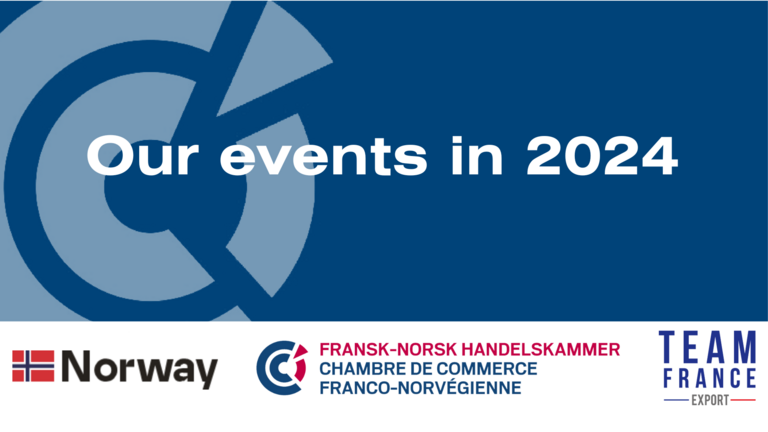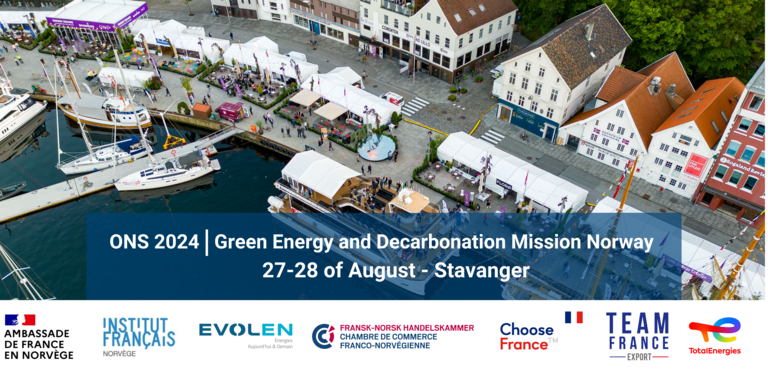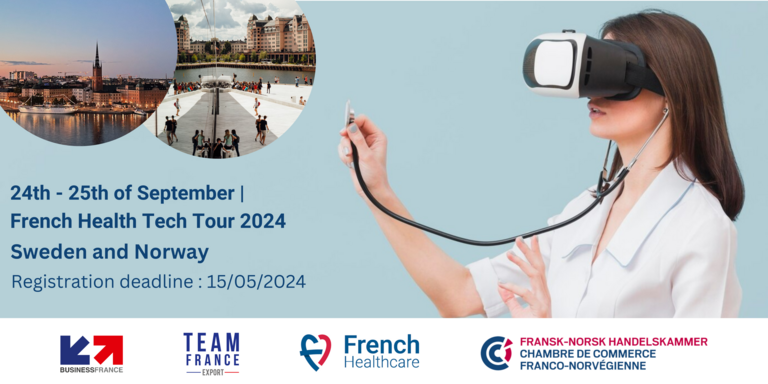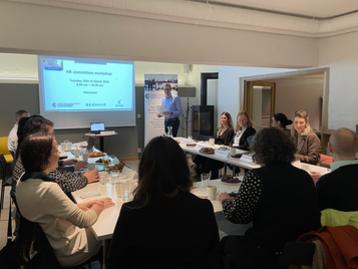Referat fra arrangementer
Business workshop at BPI France headquarter: "Visez la Norvège !"
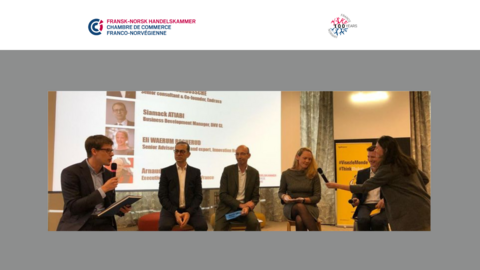
10th of April, Paris - In cooperation with BPI France
H.E. Oda Sletnes, the Norwegian Ambassador to France, opened this event by pointing out how energy has been at the core of the French-Norwegian relationship since day one. French firms were some of the first to invest in Norwegian energy resources and this relationship established through the years shows strong potential for future cooperation. Norway is currently working on developing its own Artificial Intelligence (AI) strategy, following the publication of the French AI strategy in 2018. Both countries are members of the EU AI Alliance, and their mission must be to continue to create meeting places for French and Norwegian companies both when it comes to clean energy and AI, as well as other topics.
Panel I – Norway Pioneering Sustainability and Energy Transition
Moderated by Mr Eric Rambech (Endrava)
Panelists: Mr Valentin Vandenbussche (Endrava), Mr Siamack Atiabi (DNV GL), Ms. Eli W. Rognerud (Innovation Norway, France), Mr Arnaud Bellanger (Statkraft France)
Globally, the world is slowly transitioning away from coal as a main energy source. Today, 25% of the EU gas demand comes from Norway, and Norway is extremely dependent on its oil and gas export revenues. How can a country that relies so much on its fossil fuels successfully make the transition to clean energy?
Ms. Eli W. Rognerud from Innovation Norway importantly pointed out that this transition is not only demanding in a technological and economic sense – it is also a transition that is not possible without public support. Ms. Rognerud followed up by noting that Norway has a lot to offer in the wind industry, electric mobility, electrification of the marine sector, and the boom in Fintech and AI seen in Norway - where France is and will continue to be an important test and learning ground for Norwegian firms.
One of the ways Norway is pioneering is in offshore floating wind. In Norway as in France, there is a lot of public opposition in local communities against the building of windmill parks. Floating windmills will remove this obstacle, as the windmills will not be seeable from land. Ms. Rognerud underlines that these types of problematics need to be taken into account when discussing energy transition. We need everyone on board. Mr Siamack Atiabi from DNV GL also pointed that there is not one model that fits all but energy transition processes have to be adapted to different countries and cultures. If we try to impose one model of energy transition on the entire world, we will fail. A big part of the job that needs to get done is therefore a public change of mentality that needs to come through education and information campaigns.
Norway is proof how these obstacles can be overcome. Some years ago, many argued that electric cars would never breakthrough in Norway because of the great distances. Today, over 50% of cars sold in Norway are electric, making it the world’s third largest market for electric cars (behind China and the United States).
Panel II – Artificial Intelligence: Opportunities to Cooperate on Data Analytics, Robotics & Ethics
Moderated by Mr Albert Meige (Presans).
Panelists: Ms. Anne Marthine Rustad (Sintef), Ms. Hilde Hukkelberg (Innovation Norway, UK and Ireland), Mr Øystein Fjeldstad (BI Business School), and Mr Christian Bendiksen (Braekhus)
M. Albert Meige introduced the panel with mentioning how AI can have both positive and negative side effects in terms of job creation/disappearance. AI therefore brings a lot of challenges, as well as opportunities. The three subthemes to keep in mind throughout this panel are: How to create and capture value at a EU level thanks to AI, AI ethical risks, and foresights of French-Norwegian cooperation on AI.
Ms. Hilde Hukkelberg (IN) is involved in about 800 AI companies in London, a very fast paced environment from whom Paris and Oslo can learn. IN works on trying to figure out the new business models for the future. Ms. Hukkelberg highlighted the importance of the role played by the government to set a standard in terms of ethics.
Mr Øystein Fjeldstad talked about how digital transformation is extremely important. BI Norwegian Business School works closely with the industries implementing transition initiatives. Mr Fjeldstad argued that the next 5-15 years will be critical and we may see a lot of monopolies on AI build up, as bigger companies buy up smaller initiatives. However, this cannot be discouraging, the train will move fast – and we have to be on it!
Mr Christian Bendiksen pointed out that AI is very important and relevant for a law firm in 2019 as well. In e.g. insurance companies, AI is already resulting in a lot of people losing their job: "we have to take this seriously, and compensate for people that will have to make the “transition” as well."
You are an innovative French SME / start-up specialized in the fields of Smart Cities, Energetic Transition and Green Mobility ?
Participate in a 2 days mission on Cleantech and Smart Cities in Oslo in September.
--> Please click here for more information,
- Access to the Gallery photo of the event here.
